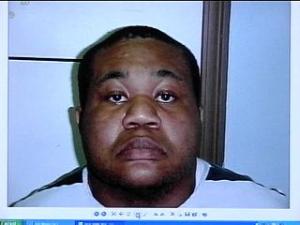Gray enters guilty plea in capital murder case

Forkland man Telvin Gray faces life without parole after pleading guilty to capital murder in a Marengo County court Tuesday.
Gray entered the plea after withdrawing two previous pleas of not guilty and not guilty by reason of mental disease or defect.
On Jan. 20, 2010, Gray shot and killed his wife Starrick Morgan Gray at Livingston High School just before the 3 p.m. bell rang. The victim was a special education teacher at Livingston High.
Gray then led authorities on a chase that ended when the Dodge Durango he was driving collided with the back of a tractor-trailer that was stopped at the intersection of U.S. Highway 80 and Walnut Avenue in Demopolis.
“The not guilty plea, in all due respect to the defense lawyers who I’m sure would have done a good job knowing both of them and having tried cases with them before, but the evidence in this case was overwhelming that Telvin Gray did go to Mrs. Gray’s place of employment with a premeditated intent to take her life. He did that from shooting her once from a motor vehicle. He was inside of a car,” District Attorney Greg Griggers said, noting that the fact Gray shot his wife from inside the vehicle warranted the capital murder charge. “She was approximately four feet from the car. I think that the evidence would have shown that the initial shot struck her in the face, immobilized her. Then he got out of the car, fired four additional shots, striking her three more times in the face. This was a crime of intense anger. It was a very gruesome killing. I think the evidence would have been very clear, not only what he did to plan and prepare for it but how he perpetrated it, what he did afterwards. There were statements made by him to various law enforcement officials after he was detained in Demopolis that he had shot Mrs. Gray.”
Prior to the commission of the crime, Gray served as a part-time preacher at Ebeneezer Baptist Church and First United Baptist Church in Forkland.

Starrick Morgan Gray served as a special education teacher at Livingston High School where she was shot and killed in Jan. 2010 by her estranged husband, Telvin Gray. The shooter entered a guilty plea to capital murder Tuesday.
“Generally speaking, he was a soft-spoken, kind, timid kind of person,” said Carol Branch, who knew him through her attendance at Ebeneezer Baptist Church and watching him grow up in Forkland, told reporters told reporters in the days following the shooting. “These things…(from) the other day are just way, way, way out from his character — way out.”
The victim was Gray’s second wife. Telvin Gray’s first marriage ended in divorce. Less than two years after Gray married his first wife, Madeline, the woman filed a restraining order against him, claiming he attempted to cause her bodily injury.
“He calls all day, every day cursing me, leaving vulgar messages while I’m at work,” the woman wrote in the petition for the 2004 order, which was filed in Marengo County Circuit Court. “He says he’s going to get me. He talks about suicide. He beats on my mother’s window all night when I’m there.”
Griggers said Gray’s decision to pull his plea regarding mental disease or defect was the result of an increasing body of evidence that indicated the shooter to be of sound mind.
“I strongly believe the reason they withdrew the not guilty by reason of mental disease is because there was no evidence to suggest that he suffered from a mental disease or defect,” Griggers said. “(Gray’s defense) had retained a psychiatrist who, as I understood it, was prepared to come to court and testify that he did. Oddly enough, we didn’t have any report from that doctor.”
Griggers noted that the prosecution in the case had secured a psychiatrist whose testimony would have proven Gray’s actions were strong indicators of a lack of mental disease or defect.
“We had a psychiatrist that was going to come and testify that had evaluated Mr. Gray at the request of the court that would have testified that he did not suffer from mental disease on the date of the offense and could and did appreciate the wrongfulness of his actions,” Griggers said. “That was pretty well shown by his own conduct after he killed Mrs. Gray because he fled the scene and was actually apprehended in Demopolis. Anytime there is flight after the commission of a crime, it’s a pretty clear indication that they know they’ve done something wrong.”

